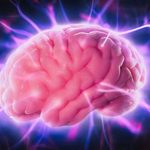
For people with epilepsy, living in lower-income neighborhoods is associated with worse mental functioning, new research suggests. For the study, the researchers looked at the memory, thinking ability and mental health of people with epilepsy, and found differences based on where they lived. Brain-health issues were more common among those from disadvantaged areas with fewer educational and employment opportunities, according to a report published online April 19 in the journal Neurology. “Epilepsy research has arguably ignored the potential impact of the social determinants of health in neighborhoods on cognition — factors that have been hiding in plain sight for many years,” said study co-author Robyn Busch, of the Cleveland Clinic in Ohio. “Our study shows that these neighborhood social factors are linked to epilepsy outcomes,” Busch said in a journal news release. Epilepsy, a brain disorder, causes recurring seizures. The researchers used a registry of people with temporal lobe epilepsy, the most common adult form of epilepsy. This is associated with a high risk for thinking problems and depressed mood. The study team identified 800 people, average age 38, whose epilepsy was resistant to treatment and who had been evaluated for potential epilepsy surgery. The investigators compared their scores on intelligence, attention, memory, other thinking skills, anxiety and depression. Using participants’ home addresses and the Area Deprivation Index, the researchers determined if each person lived… read on > read on >
























-300x200.jpg)













